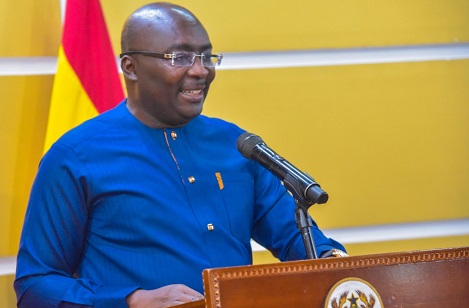
Big relief for tertiary students
Last week, the age-old hustle of students in tertiary institutions finding people to guarantee their forms to access loans came to an end.
Henceforth, students in tertiary institutions will not need guarantors before accessing loans from the Students Loan Trust Fund (SLTF).
It means that an applicant needs only an admission letter confirming his/her admission to a recognised tertiary institution and his or her Ghana Card to access the loan.
This followed the launch of the ‘No Guarantor Students Loan Policy’ by the Vice-President, Dr Mahamudu Bawumia, at the Kwame Nkrumah University of Science and Technology (KNUST) last Wednesday.
The Daily Graphic applauds the government for actualising yet another important policy in the educational set-up to alleviate the struggles many tertiary students go through in the course of their stay in school.
We also see it as a major intervention which will encourage more people to enter the universities to pursue their dreams because the policy is aimed at making tertiary education accessible to all Ghanaians.
Although it is a fulfilment of a manifesto promise to remove barriers to accessing financial support for tertiary education, we need to celebrate this as a national feat, in view of the fact that the beneficiaries cut across political frontiers.
The paper is aware that the guarantor-free loan application for students is one of the benefits of the digitalisation process being undertaken by the government to build the economy.
It is also a major benefit from the deliberate moves by the government to prioritise digitalisation because that is the world order and countries that lag behind will have themselves to blame.
Hitherto, the guarantor system was relevant because there was no system the managers of the SLTF could rely on to ensure that all those who accessed the loans paid back.
That situation led to losses to the state — as a revolving fund, any default by those who accessed the loans first meant that the next batch would have theirs with some level of difficulty.
The Ghana Card gives us all the data we need about the students to take a decision on their loans, and we are very confident that the card will provide us all the information we need to recover the loan.
The paper is also happy to note, from what Dr Bawumia indicated, that an echo-system was being built around the Ghana Card, such that it contained all the information one needed on one’s passport, including his or her digital address.
We need to acknowledge the fact that one’s Ghana Card number is now one’s National Health Insurance Scheme number, Social Security and National Insurance Trust (SSNIT) number and Tax Identification Number (TIN), and from July this year, the card will also be linked to one’s bank accounts.
In addition, the Ghana Card will be linked to one’s SIM cards and driving licence, so that people cannot hide from the system.
Reports have shown that due to the implementation of the free senior high school policy, the floodgate for more people to have access to tertiary education has been opened.
However, due to lack of funds, some brilliant students were unable to access tertiary education, and for those who were able to do so, the requirements for the loan were such that some were unable to qualify for it.
The Daily Graphic, therefore, sees this opportunity created as a step in the right direction which we all must embrace and applaud.
We urge students to take full advantage of the opportunity to apply for the loan and put it to good use.
The paper would like to entreat those who do not need it to allow those who are genuinely in need of it to access it to fund their education.
Let us be one another’s keeper and make sure that we guard against any abuses that will put unnecessary pressure on the fund.
